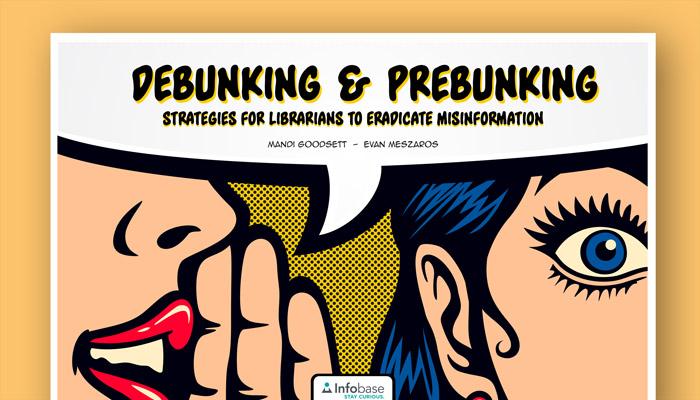In the intricate realm of ecological theories, Gaia Theory stands as a thought-provoking concept that has sparked both admiration and skepticism among scientists and enthusiasts alike. Delving into the heart of this theory unveils a tapestry of interconnectedness between Earth’s systems, proposing that the planet functions as a self-regulating organism. While this idea may captivate many with its elegance, it also faces a wave of criticism and scrutiny. Let us embark on a journey to explore the depths of Gaia Theory’s critics, unraveling their concerns and shedding light on the discourse that surrounds this fascinating ecological concept.
Table of Contents
- Debunking Common Misconceptions Surrounding Gaia Theory
- Analyzing the Scientific Validity of Gaia Theory Criticisms
- Exploring Alternative Perspectives on Gaia Theory
- Recommendations for Further Research and Discussion on Gaia Theory
- Q&A
- Key Takeaways

Debunking Common Misconceptions Surrounding Gaia Theory
One of the most widespread misconceptions about Gaia Theory is the belief that it suggests the Earth functions as a conscious, sentient being. In reality, Gaia Theory proposes that the Earth is a self-regulating system where living organisms and their inorganic surroundings interact to maintain conditions suitable for life. It’s more about interconnectedness and feedback loops rather than attributing consciousness to the planet itself.
Another common criticism of Gaia Theory is the misconception that it implies nature is always in perfect balance. In truth, the theory acknowledges that environmental systems are complex and dynamic, with fluctuations and adjustments occurring over time. It highlights the adaptability and resilience of ecosystems rather than a static state of equilibrium. Gaia Theory invites us to see the Earth as a living organism in which various elements work together to create a sustainable environment for all forms of life.
Analyzing the Scientific Validity of Gaia Theory Criticisms
Delving into the realm of Gaia Theory opens up intriguing discussions around the interconnectedness of Earth’s systems. While this theory proposes that our planet operates as a self-regulating organism, criticisms have emerged challenging its scientific validity.
<p>Some key points of scrutiny revolve around:
<ul>
<li>The anthropocentric view embedded in Gaia Theory</li>
<li>The level of consciousness attributed to Earth</li>
<li>The feasibility of a global regulatory mechanism</li>
</ul>
</p>Exploring Alternative Perspectives on Gaia Theory
As with any scientific theory, Gaia Theory has not been without its fair share of criticism and alternative perspectives. Some scholars argue that the idea of Earth as a self-regulating organism is too anthropocentric, attributing human-like qualities to our planet. However, others view Gaia Theory as a thought-provoking framework that challenges traditional scientific paradigms.
<p>In , it's essential to consider the various critiques and counterarguments that have emerged over the years. From debates about the extent of Earth's self-regulation to discussions on the role of feedback mechanisms in maintaining planetary homeostasis, delving into these differing viewpoints can offer valuable insights into our understanding of the interconnectedness of life on Earth.</p>
Recommendations for Further Research and Discussion on Gaia Theory
In the realm of Gaia Theory criticism, there exist intriguing avenues for further exploration and discourse. To delve deeper into this subject, researchers could contemplate the implications of symbiotic relationships within ecosystems on the theory’s framework. **Performing comparative analyses between different ecosystems and their responses to environmental changes** might shed light on the theory’s applicability across various biological systems.
Moreover, investigating the role of human activities in altering the balance of these systems could provide valuable insights into the theory’s resilience in the face of anthropogenic influences. Exploring case studies where human interventions have either disrupted or enhanced ecosystem stability could offer a nuanced perspective on Gaia Theory’s relevance in the context of modern environmental challenges.
Q&A
Q&A: Gaia Theory Criticism
Q: What is Gaia Theory, and why is it controversial?
A: Gaia Theory, proposed by scientist James Lovelock, suggests that the Earth is a self-regulating organism. It posits that the planet and all living organisms on it function as a single, complex system. The controversy lies in the extent to which the Earth can be considered a sentient being capable of self-regulation.
Q: What are some common criticisms of Gaia Theory?
A: Critics argue that attributing self-regulating properties to Earth anthropomorphizes the planet, suggesting a level of intentionality and consciousness that may not exist. Some view it as a form of pseudoscience due to its mystical undertones and lack of empirical evidence.
Q: Do scientists completely dismiss Gaia Theory?
A: While some aspects of Gaia Theory have been met with skepticism, particularly its more metaphysical interpretations, elements of the theory have influenced fields such as ecology, systems theory, and earth sciences. Scientists continue to debate the concept’s validity and implications.
Q: How has Gaia Theory evolved over time in response to criticism?
A: Some proponents of Gaia Theory have modified the original concept to address specific criticisms. For instance, they emphasize the interconnectedness of ecosystems and the importance of understanding Earth as a dynamic, interdependent system.
Q: What role does Gaia Theory play in current environmental discourse?
A: Gaia Theory has stimulated discussions about humanity’s relationship with the planet and the need for sustainable practices. While not universally accepted, it has prompted a reevaluation of how we perceive and interact with the natural world.
Remember, these questions and answers provide a glimpse into the complex landscape of Gaia Theory criticism, serving as a starting point for further exploration and dialogue.
Key Takeaways
In conclusion, while Gaia theory has sparked both fascination and skepticism within the scientific community, it continues to provoke thought and challenge traditional views on Earth as a self-regulating system. By exploring the criticisms surrounding Gaia theory, we gain a deeper understanding of our planet’s intricate processes and the ongoing debate on the interconnectedness of life. As we navigate through the complexities of environmental science, let us remain open to diverse perspectives and continue to question, learn, and evolve in our quest to unravel the mysteries of the dynamic living organism we call Earth.



0 Comments